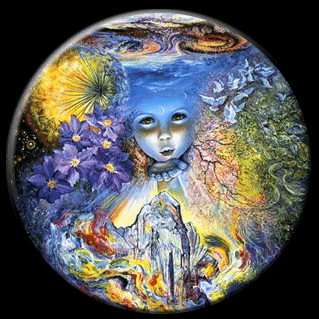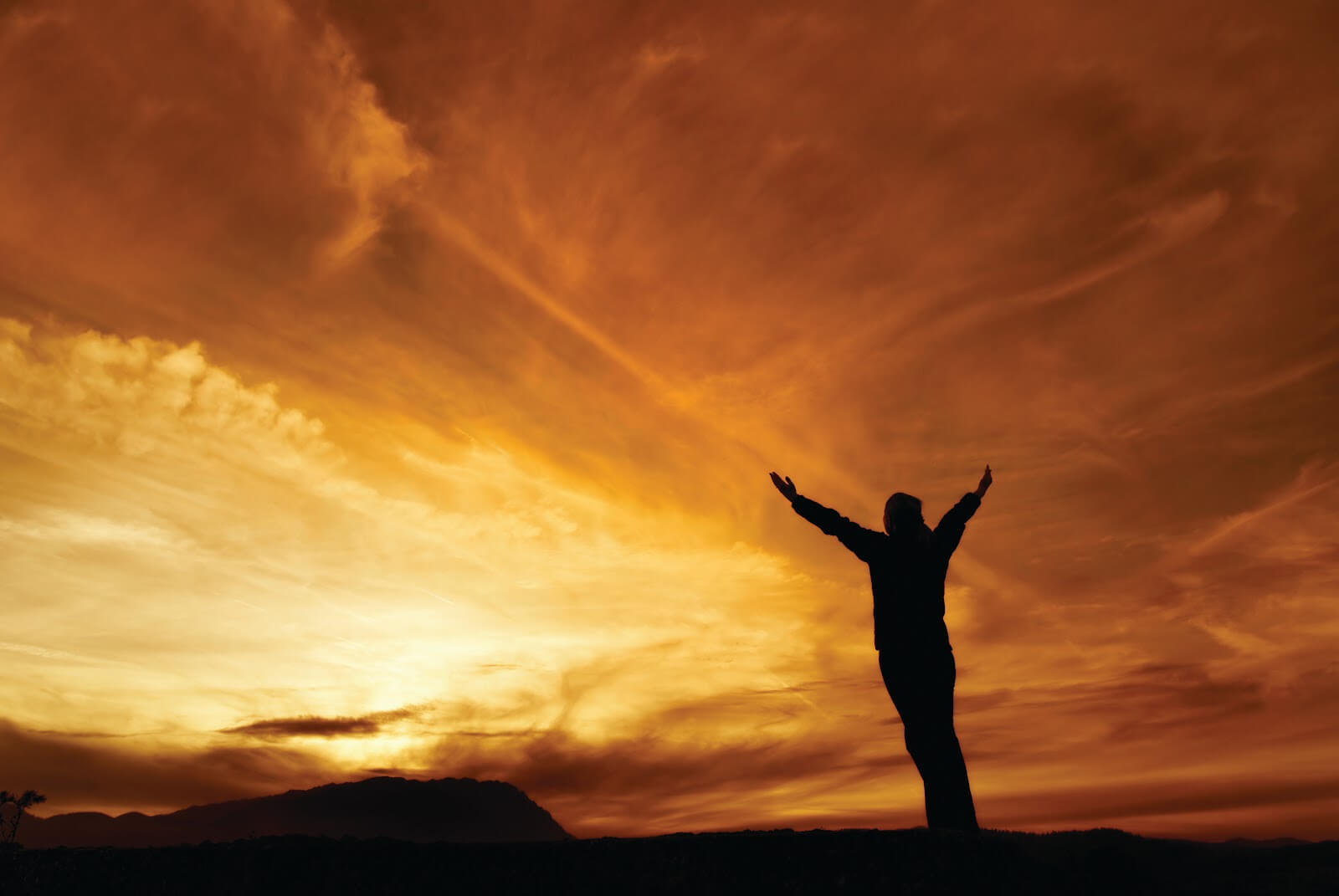To contact the numinous, one has to forget experiences, not accumulate them. And peak religious experiences are the most important experiences to forget.
 Trying to repeat them, one moves in the opposite direction, preventing them from recurring and deepening. Even so, short of illumination, can so-called mystical experiences help keep one’s priorities clear and one’s course correct?
Trying to repeat them, one moves in the opposite direction, preventing them from recurring and deepening. Even so, short of illumination, can so-called mystical experiences help keep one’s priorities clear and one’s course correct?
So-called mystical experiences demonstrate both the possibility and challenge of awakening to the fullest of one’s inner capacity, while still functioning in the world. And this was before the culture went completely dark, which makes awakening both much harder, and more urgent.
Making a distinction without a duality, it’s clear that the fundamental mistake, the ‘original (and ongoing) sin’ we humans make is carrying over the utilitarian function of ‘higher thought’ into the psychological realm.
Mystical experiencing is essentially nothing more than the temporary cessation of this mistake, so that one sees and feels, at a visceral level, the actuality of oneness rather than the illusion of separateness.
But they can make for funny occurrences. One such incident involved a group of friends after I had returned to college in my early 30’s to get my degree.
It was a small college in California’s Central Valley. On a really clear winter’s day just outside the pleasant town, you could make out Half Dome in Yosemite with the naked eye, over 60 miles away. (Even locals who grew up there didn’t believe me until I told them where to look with a pair of binoculars.)
But the little city had no river, and having grown up on the Great Lakes, I had to be around water two or three times a week. So I’d drive to the Merced River, about 20 minutes outside town (the same river that runs through Yosemite Valley) to walk and take a meditation.
The meditations deepened and became intense during this period, despite a busy schedule with school, work and running track. The first question I’d ask myself at that time was, do I have any goal with meditation? (Inward goals prevent meditation from occurring.)
Asking that question during a sitting outdoors, without answering, focuses and gathers awareness. Then simply looking and watching what is—the entire movement in one’s mind, heart and body—without judging or trying to change anything.
One day the meditation grew so intense that not only did thinking and thoughts completely cease, but also the body spontaneously became immobile, as it does in deeper states of meditation. It may sound undesirable, if not dangerous, but there is tremendous joy, and some inner intelligence watches over one.
It was spring, and life was exploding along the river. The water was flowing fast and clean; the grasses  were varied and green; and many species of birds sang and flew around me.
were varied and green; and many species of birds sang and flew around me.
The perception of beauty can be so strong that when the mind stops completely, and the heart is completely open, ecstasy floods the body to the extent that one becomes transfixed.
Everything stopped, and I couldn’t remember where I was. There was nothing but a burning intensity of beauty. The essence of nature and the universe was felt so acutely that there was nothing else. It was neither imagined, nor idiosyncratic, but rather the very definition of peak religious experience.
The first time it happened fear arose, due to the thought that one may be losing one’s mind. But awareness instantly came to the thought and fear, and one asked: Am I losing my mind? No, one is gaining Mind, one realized.
One’s faculties returned, but like first learning to drive a car, I had to think about everything I did. (There was no ‘I,’ just doing, but allow for the language.) The nature of thought is never so clear as during such events, with a clear distinction between the functional side and psychological content.
There wasn’t a thought driving the car back to town, except the route back and how to operate the vehicle. When I returned, I remembered an invitation to join some friends for lunch in the cafeteria.
But when I entered the big room full of people, it was just a sea of faces. The recognition program and memories had temporarily ceased, and it was like walking into the place for the first time. More than that, it was like seeing with the mind of a young child. I understood firsthand the meaning of “you must return and become like children,” as well as “the beginner’s mind.”
I heard my name called out. “Marty, what the hell are you doing?” came the voice from the table next to me. Snapping back to ‘reality,’ I replied, ‘Eric, I couldn’t explain it to you in a 100 years.’
Normally we act automatically from experience, habit and knowledge. They arise from the ancient habit of separation and a storehouse of personal and collective memory, most of which is psychological, not functional.
When thought is completely quiet, the human brain comes into contact with actualities beyond words.
Martin LeFevre

